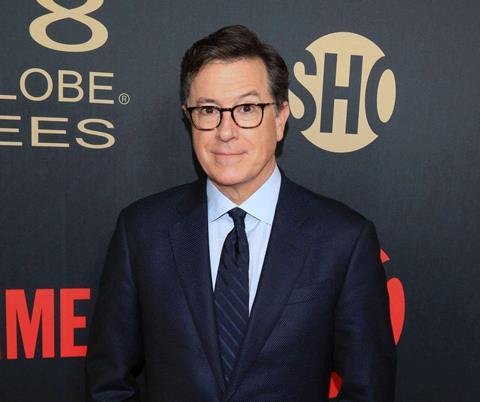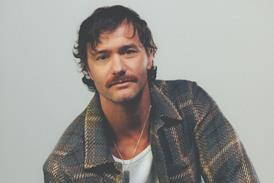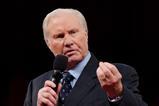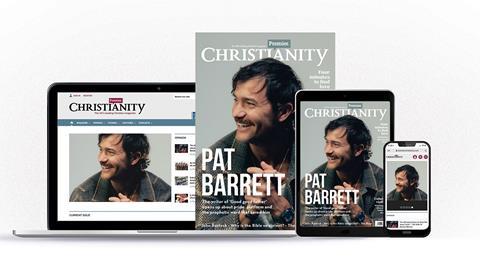Catholic comedian Stephen Colbert has criticised CBS for cancelling The Late Show, alleging his outspoken views on Donald Trump got him fired. But Billy Hallowell argues that comedy is not the place for one-sided politics

When US TV channel CBS decided to cancel The Late Show with Stephen Colbert, it provoked a great deal of debate. Some claimed it was an act of political persecution due to Colbert’s regular critiques of President Donald Trump.
Thus far, the voices decrying the decision are loud. David Letterman, creator of The Late Show and its former comedic host, lambasted the move, calling it “pure cowardice” and pushing back on claims the cancellation was for strictly financial reasons.
Without getting too lost in the weeds, Colbert’s dismissal, which takes effect next year, comes amid Paramount’s $16 million settlement with Trump, who sued them over an interview with former Vice President Kamala Harris aired on the show 60 Minutes.
Politics has permeated everything, with comedy becoming one of the casualties
Trump argued that the interview, conducted during the 2024 presidential campaign, was deceptively edited to help the Democratic Party.
Critics, including Letterman, believe that the decision to can Colbert was in part due to Paramount’s acquisition by Skydance Media. Skydance, according to frustrated critics, is trying to curry favor with Trump. The company needed the Federal Communications Commission to agree to Paramount’s sale, so Skydance has punished Colbert for his outspoken views.
“They don’t want to get their hands dirty,” Letterman said in a recent interview. “They don’t want the government going after them, because that concept of freedom of the press and freedom of speech - that’s so old-fashioned.”
A fair fight
Current late-night hosts have similarly rallied around Colbert, with Jon Stewart accusing Paramount of trying to “censor and control” hosts. And Colbert himself has claimed the “gloves are off,” in the wake of the ordeal.
But here’s the thing: the gloves should have never been on. Politics has permeated everything we know and love, with comedy becoming one of the most prevalent casualties.
Whether there was a true financial reason to halt the show isn’t the issue, although I’d argue that any network with a cash cow at their fingertips would be reluctant to abandon it (and some reports indicate Colbert’s show was losing tens of millions of dollars every year).
The broader issue is that late-night comedy should be an equal opportunity offender. Over the years, people like Colbert, Stewart and many others have built illustrious careers making people laugh while commenting on politicians, society and the issues of the day.
But when these individuals almost uniformly began to critique only one belief system and way of seeing the world, it began to wear on people.
At some point, these TV comedians encased themselves in a bubble that, for some reason, chose to alienate half of the American populace. In becoming activists seemingly intent on going after one ideology, the result was a sort of exhaustion that is finally coming to a head.
Late-night comedy should be an equal opportunity offender
But you don’t have to take my word for it. Years ago, the late, great star of The Tonight Show, Johnny Carson, spoke out about the pressure he felt to speak on serious issues, rebuffing critics who encouraged him to do so. “That’s not what I’m there for,” he once told 60 Minutes.
And then there’s Jay Leno, who hosted The Tonight Show from 1992 until 2009. Speaking shortly before Colbert’s cancellation, he questioned why comedians “shoot for just half an audience all the time”.
“You know, why not try to get the whole?” he added. “I mean, I like to bring people into the big picture. I don’t understand why you would alienate one particular group.”
United in criticism
Leno’s take is that “funny is funny” and comedy can unite people on that basis. He said he often received criticism from individuals on either side of the political aisle, as he’d try to balance out his commentaries.
Ultimately, the comedian said individuals don’t watch late night TV for “a lecture” - and he’s right. People are looking for an escape, which is why equal opportunity critique is so valuable. Tragically, we’ve lost so much of that in our hyper-political era, which is too often devoid of humanity.
Ephesians 6:12 tells us that we’re not enmeshed in a struggle against flesh and blood but between good and evil. Yet our secular culture often becomes so consumed by the us-versus-them phenomenon that something fun – such as comedy - becomes a toxic battleground.
Ultimately, it’s impossible to know if Colbert’s cancellation is political in any way, although I’d argue that it doesn’t really matter. TV networks have the right to hire and fire whomever they choose.
The more pressing issue is that there’s virtually no diversity of thought in comedy - it has become an unequal attack on one side of the aisle. And we’re so obsessed with the politics that we have allowed it to ruin even our most basic joys, including entertainment and late-night TV. That should deeply concern us.







































No comments yet